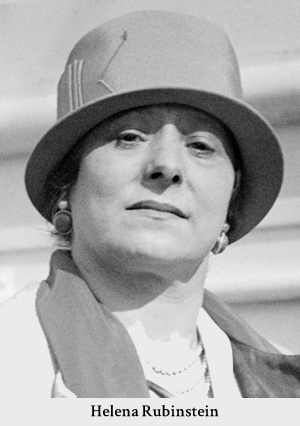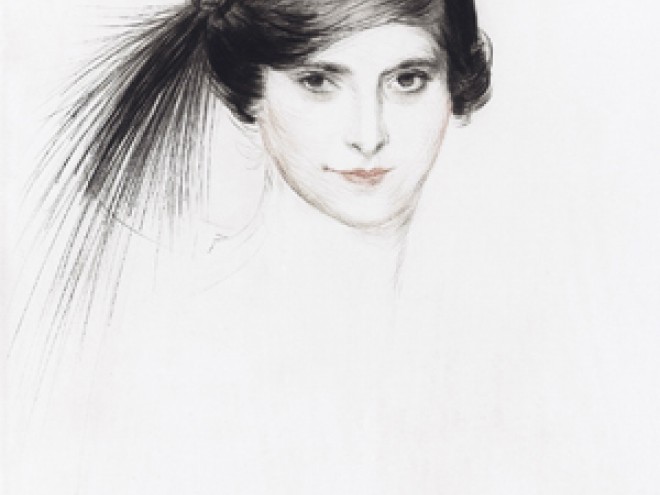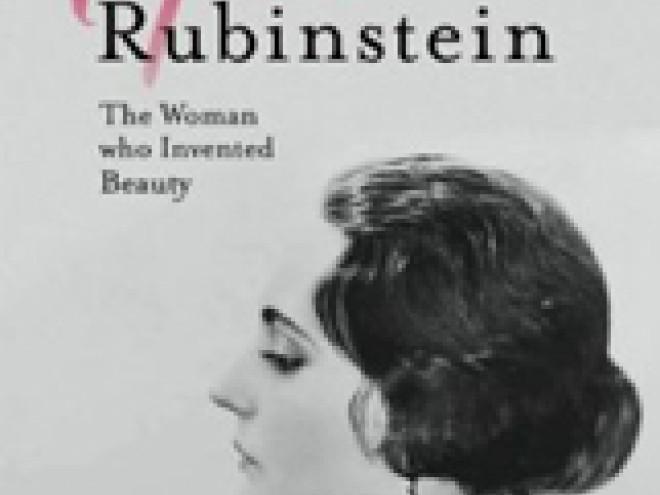Michèle Fitoussi is the author of screenplays, fiction and non-fiction, including the international bestsellers Superwoman’s had Enough and The Prisoner. She also co-wrote Stolen Lives with Malika Oufkir, which sold more than a million copies throughout the world and remained on the New York Times best-seller list for 25 weeks after being stamped as an “Oprah Book” by Oprah Winfrey. Her newest book, Helena Rubinstein: The Woman Who Invented Beauty, is now available. She will be blogging here all week for Jewish Book Council and MyJewishLearning.
 People always ask me the same question: ‘What made you want to write about Helena Rubinstein?’ And the answer is always the same. When I began to read her autobiography – in which she does nothing but lie – it made me want to know more, and I became passionate about the romantic yet modern story of this petite ( 4’8”) woman of Polish descent, always perched on sky-high heels, who passed away 48 years ago.
People always ask me the same question: ‘What made you want to write about Helena Rubinstein?’ And the answer is always the same. When I began to read her autobiography – in which she does nothing but lie – it made me want to know more, and I became passionate about the romantic yet modern story of this petite ( 4’8”) woman of Polish descent, always perched on sky-high heels, who passed away 48 years ago.
I immediately understood the potential of her story, and all there was to tell. Not least starting with her solo departure to Australia; her two-month boat journey, twelve pots of cream from her mother in her suitcase. It was 1896, she was 24 years old, spoke no English, had never met her Australian family – and she was heading into the unknown with a certain amount of bravery and determination which fascinated me. She was an adventurer, and I loved that about her.
I was, and remain, fascinated by her enthusiasm, her curiosity, her bravery and her youthfulness. She was afraid of nothing and had an endless amount of energy, passion, and intelligence. She was a real heroine and, as she used to say, all the things she’d experienced could easily have filled half a dozen lives. She remains a role model and an inspiration for women all over the world.
With her we travel across the twentieth century through the medium of beauty and art, we witness the empowerment of women, the birth of consumerism, marketing and publicity. We spend time in Krakow, Paris, New York, Melbourne and London… She has lived a thousand lives, and I thought it was worth shedding more light on them.
Michèle Fitoussi was born in Tunisia to French parents, and has lived in Paris since the age of five. She worked as a journalist at Elle magazine for years, interviewing world leaders in areas as varied as politics, human sciences, sports, literature and the media.
Related Content:
- Reading List: Jews and Fashion
- Lola Bensky: A Novel by Lily Brett
- How To Look Expensive by Andrea Pomerantz Lustig
Michèle Fitoussi was born in Tunisia to French parents, and has lived in Paris since the age of five. She worked as a journalist at Elle magazine for years, interviewing world leaders in areas as varied as politics, human sciences, sports, literature and the media. She is the author of screenplays, fiction and non-fiction, including the international bestsellers Superwoman’s had Enough and The Prisoner. She also co-wrote Stolen Lives with Malika Oufkir, which sold more than a million copies throughout the world and remained on the New York Times best-seller list for 25 weeks after being stamped as an “Oprah Book” by Oprah Winfrey. Her newest book, Helena Rubinstein: The Woman Who Invented Beauty, is now available. Her forthcoming book about the 2008 terrorist attacks in Mumbai will be published in France this September.
On Writing a Biography of Helena Rubinstein
On Trailing the Life of Helena Rubinstein
Michèle Fitoussi’s Favorite Episodes in Helena Rubinstein’s Biography


